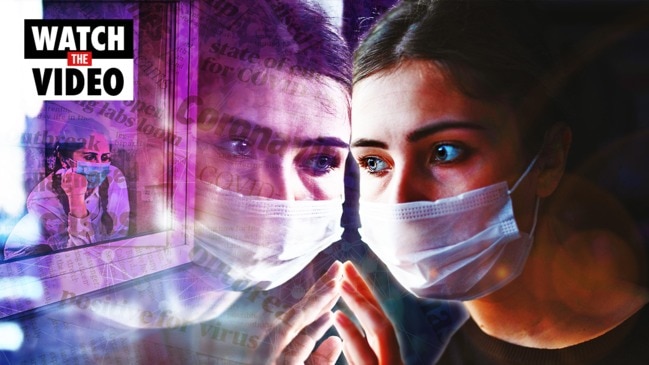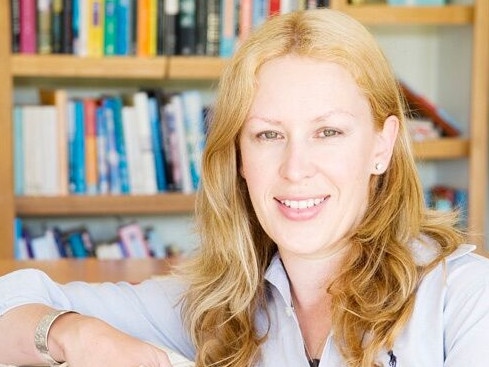Stress less: how the COVID-19 pandemic is changing the way Queenslanders work and play
An exclusive national survey has exposed exactly what it’s like living through the global pandemic. DO YOUR EXPERIENCES MATCH THE POLL RESULTS?

QLD Coronavirus News
Don't miss out on the headlines from QLD Coronavirus News. Followed categories will be added to My News.
STRESSED-out Queenslanders craving more quality time with family and friends are leading a COVID-19 work-life rebellion.
The pandemic has pounded Queenslanders’ wealth and mental health, with one in three households losing money and nearly half feeling stressed or frightened.
An exclusive national survey for The Courier-Mail reveals how the coronavirus crisis has changed the way Queenslanders work and play, exposing the joy, sorrow and stress of living through a global pandemic.
Queenslanders urged to consider risks of travelling to NSW
‘Much more concerned’: Two new QLD cases, border bans loom
Editorial: Qld doesn’t need another total coronavirus lockdown
Revealed: How many people want another border shutdown
The silver lining for a third of Queenslanders has been more time for themselves and family, a healthier lifestyle and a chance to save money.
But half are suffering separation anxiety from friends and family, while money worries, job insecurity and health fears fuel stress and anxiety for 40 per cent of Queenslanders.
And with a quarter of men still shaking hands, the YouGov survey reveals many Queenslanders are flouting the rules over social distancing.
One in five Queenslanders feels healthier, as lockdowns forced them to ditch nightclubbing and pub crawls for home-cooked meals and exercise.
Twelve per cent of workers have vowed not to work so hard in the future.
“People have re-evaluated the need to be busy all the time,’’ Queensland University of Technology (QUT) Associate Professor of psychology Trish Obst told The Courier-Mail yesterday.
“They’re valuing family and friends and have rediscovered the joy of cooking and baking, and the simple things in life.’’
“But many people are under extreme financial stress and are feeling uneasy, stressed and vulnerable, and worried about the future of the world.’’

The YouGov survey reveals that Queenslanders value health over wealth – 40 per cent believe it is more important to stop the spread of COVID-19, compared to 12 per cent who prioritise “getting the economy moving again’’.
Nearly a third of Queenslanders believe the state’s COVID-19 controls are too lenient, with just 5 per cent complaining they’re too tough.
A third of Queenslanders are poorer as a result of COVID-19 restrictions, although 12 per cent are better off financially.
Twenty per cent of Queenslanders think it will take between six months and two years for their household finances to recover.
Lockdowns are taking a toll on mental health, with 42 per cent of Queenslanders feeling stressed – especially parents – and more than a third feeling isolated or fearful.

With one in four workers wanting to do their job from home, some employers are having trouble luring them back to the office.
“People are realising their whole life can change in five minutes and this has brought about a big shift in how they live and work,’’ Bond University’s assistant professor of organisational behaviour, Dr Libby Sander, told The Courier-Mail.
“A lot of people were very stressed, very busy and not enjoying life the way it was.’’
The COVID-19 lockdowns have hit two groups the hardest – young Queenslanders and the elderly.
Gen Z, those younger than 24, bore the brunt of job losses as COVID-19 closures hit the tourism, hospitality and retail industries, which provided casual work for teenagers and university students.

And with many boomeranging back home with their parents, Gen Zs report the highest level of family arguments.
“It’s a really challenging time of life to be asked to stay cooped up with your parents or flatmates,’’ GenYou’s Asia-Pacific head of polling, Dr Campbell White, said yesterday.
Associate Professor Obst said twenty-somethings were missing out on many “rites of passage’’, such as backpacking overseas, making lifelong friends at university, and clubbing with mates.
“They have the advantage of being experts in social media for connecting with friends, but it still doesn’t replace face-to-face interaction,’’ she said.

The elderly were struck by “isolation and fear’’, she said, as they missed seeing grandchildren, volunteering, or catching up with friends at bingo.
“They are making potentially life and death decisions whenever they leave the house ,’’ she said.
The YouGov survey shows that one in five Gen Zs report “more family arguments’’ since COVID-19.
Ten per cent of Queenslanders reported more family arguments, raising fears of domestic violence as stressed families are forced to spend more time together.
But more Queenslanders are enjoying time with family, with one in three citing “more time with family or pets’’ as a positive outcome of the COVID-19 crisis.
One in 10 are enjoying flexibility at work, and a third of people appreciate the end to commuting in heavy traffic or on crowded public transport.
Accountant Emily Ridley, of Newport, quit her job to set up her own business, Emerge Advisory, to help companies adapt to the chaos of COVID-19.
“Working from home full-time really works for me – it’s more productive to sit in silence and get work done, instead of being in a busy office,’’ she said yesterday.
“Commuting to Brisbane was just wasted time. My partner works from home too, and even though we’ve been in the house 24 hours a day our relationship is stronger than ever.’’


